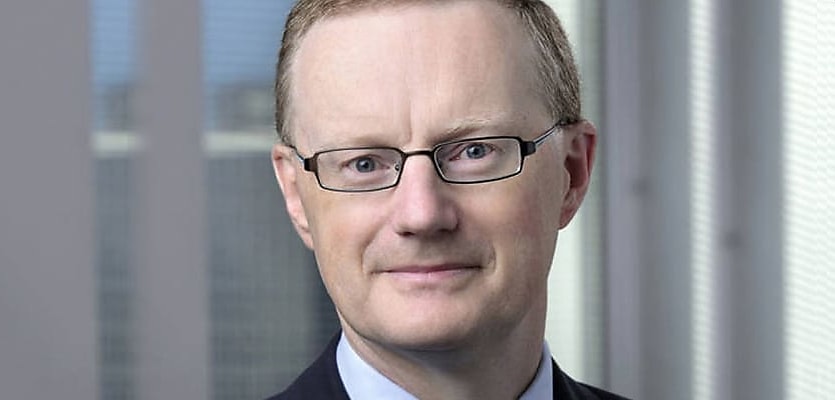RBA governor Mr Philip Lowe has defended the central bank’s tactics to “navigate the narrow path”, a senate committee has heard.
Reserve Bank of Australia (RBA) governor Philip Lowe fronted the Senate Economic Committee on Wednesday (15 February), defending the central bank’s recent criticism over rising interest rates.
Accompanied by deputy governor Michele Bullock, Mr Lowe answered a range of questions from the senators but took particular issue with the allegation that he was “trying to smash the economy into recession”.
The Senate committee questioned Mr Lowe about the “mortgage pain” being suffered by many Australians due to the record nine central bank cash-rate hikes since May last year.
Senator Nick McKim reminded Mr Lowe that he had admitted to “overdoing monetary stimulus during the pandemic” and that he had stated rents weren’t likely to be significantly impacted by interest rate increases, but “rents are currently going up at the fastest rate on record.”
“You seem prepared to smash Australia into a recession by trying to squash demand in response to inflation that has, on the [RBA’s] own analysis, been predominantly a result of supply-side factors,” the senator said.
Mr Lowe was asked if he could explain to the renters and mortgage holders of Australia why he still deserved to hold his job, to which he responded: “I have a seven-year term as the governor of the bank and I intend to serve out that term.
“It’s an important job. It comes with public accountability in the process, but I intend to serve out that term.”
In answering a key part of Senator Jane Hume’s earlier questioning, Mr Lowe said, “The decisions that the Reserve Bank made are made by a board of nine people.”
“It’s not just me. We make them collectively and collaboratively, and the board has made these decisions.
“I think it would be a very bad outcome for the board to have to resign; it’s a collective responsibility.”
The governor added: “Can I just pick up on one other issue that you raised? You said that I seem intent on smashing Australia into a recession.”
To this, the governor replied: “Can I assure you that’s not our intention? We are trying to navigate a narrow path here. We want to get inflation down because it’s dangerous. It’s corrosive; it hurts people.
“It damages income inequality and stays high. It leads to higher interest rates and … more unemployment, so we want to get inflation down.
“But we also want to preserve the gains in employment.”
The tightrope ladder of opportunity
In that context, Mr Lowe was keen to highlight that the unemployment rate today is the lowest in 50 years.
He said it was a huge national benefit and people have jobs “that in the past wouldn’t have had jobs.”
“Kids get opportunities; they get on the ladder of opportunity and success.
“People are getting the hours they want, and the employment-to-population ratio has never been higher, [and a higher] share of Australians have jobs today.
“We really think that’s good news,” he said, explaining that the RBA wanted to preserve as much of the progress made on the labour market as possible.
“So there’s a narrow path here. And there are risks in both directions. “Our objective is to travel that narrow path as best we can,” he said.
Mortgagors and renters in focus
Asked to what extent the plight of every Australian mortgage holder and renter factored into the RBA’s cash rate decisions, an empathetic Mr Lowe highlighted that the bank recognised it is getting really difficult for those cohorts.
“I get a lot of people writing to me at the moment telling me [their] personal circumstances and it’s really, really tough,” he said.
“We understand that and, you know, I read those letters and hear those stories with a very heavy heart.
“I find it personally disturbing; people are really, really hurting. I understand that,” he said.
“But I also understand that if we don’t get on top of inflation, it means even higher interest rates and more unemployment,” he reiterated, conceding that due to the current hikes, “the banks are profitable.”
“It’s true. It’s a positive for the country. You want strong, resilient banks,” he said.
Fiscal versus monetary policy: The real culprit?
Notably, the issue of inflationary pressures exerted via government fiscal (spending) policy not commensurately reflecting the constraints of monetary (central bank) policy was raised.
Senators asked Mr Lowe if, in the RBA’s opinion, the current fiscal policy was “expansionary, restrictive or neutral”.
Mr Lowe replied, “Our assessment is that it’s broadly neutral.
“If you take the federal government and the state governments together (which I think is the best way to think about it), the budget deficit is a share of GDP around 3 per cent.
“It’s likely to stay around that mark for the next few years.
“The federal budget deficit narrows a bit and then widens, and the states are doing the reverse.
“So the best way to think about whether fiscal policy is contractionary or expansionary is to look at the change in the aggregate budget deficit.
“And over the forecast period, there is little change in the budget deficit as a share of GDP, so I would describe it as ‘neutral’,” he explained.
Pressed for further comment on fiscal policy, Mr Lowe said: “The government doesn’t comment on what I should or shouldn’t do, and so I’m not going to comment on the direction of fiscal policy.”
[Related: February cash rate hike continues mortgage pain]




You are not authorised to post comments.
Comments will undergo moderation before they get published.